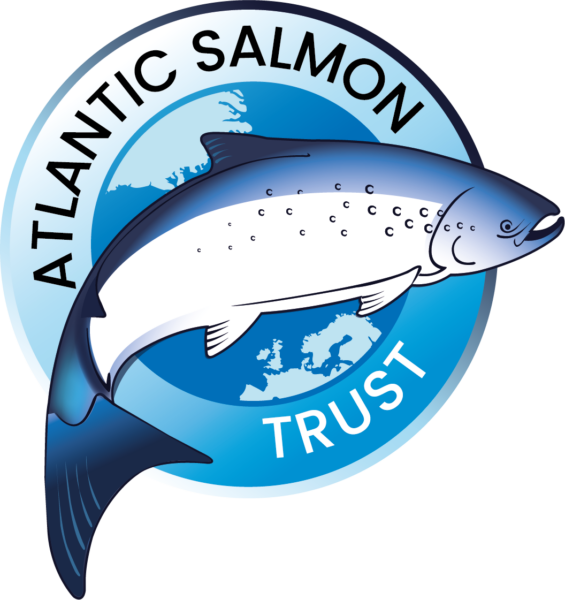Project Deveron fully reopens tributary to give wild salmon unhindered access to 11km of spawning habitat for the first time in 150 years.
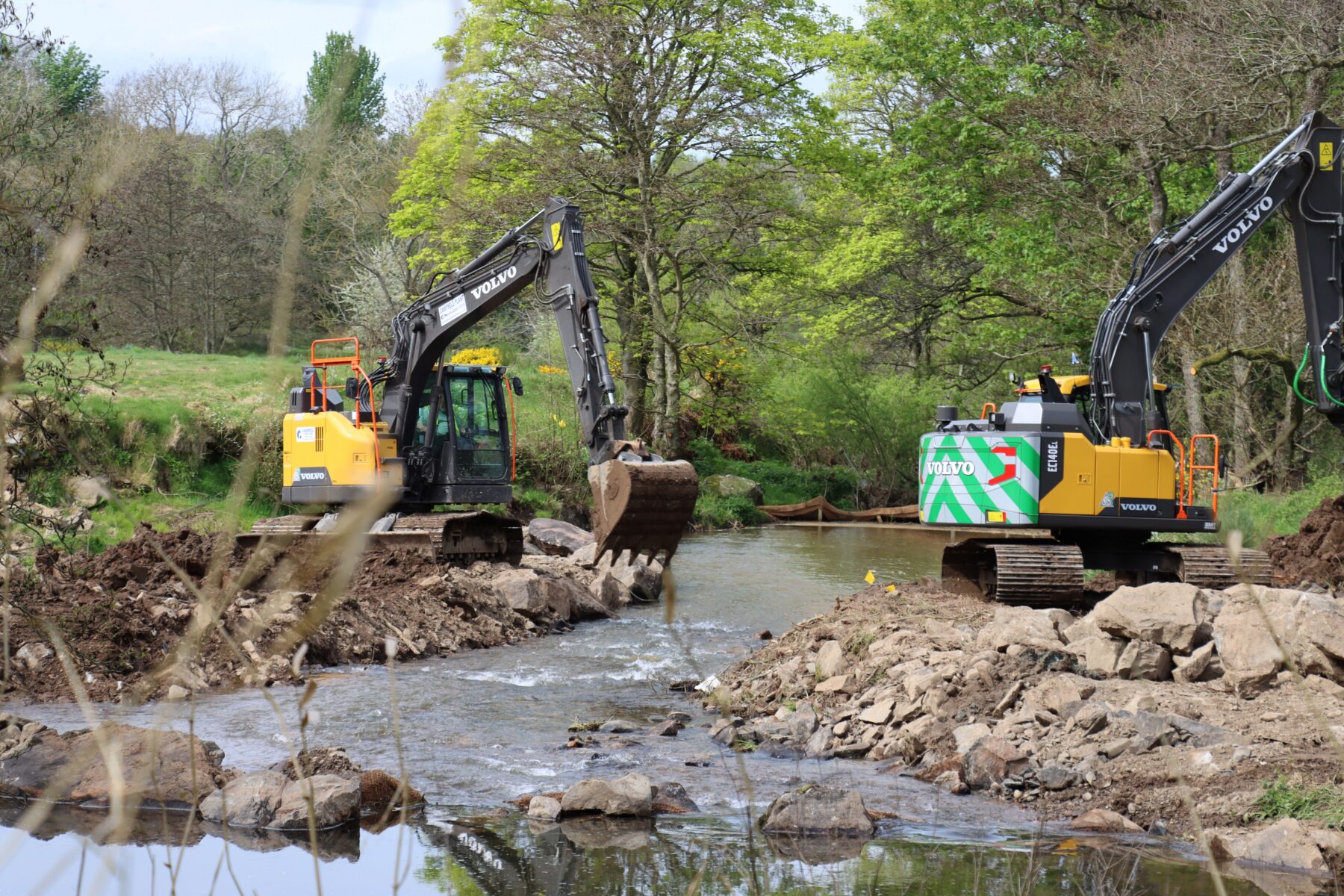
Water flows freely again for the first time since the 1870s as the decrepit Mill of Eden weir on the King Edward tributary is removed, granting unhindered passage for wild Atlantic salmon, trout, eels and other aquatic wildlife to over 11km of habitat.
After 150 Years, A River is Reconnected
Project Deveron, a catchment-scale wild salmon recovery project comprised of partners The Deveron, Bogie & Isla Rivers Charitable Trust and Atlantic Salmon Trust, has just succeeded in achieving one of its major early habitat restoration goals in the River Deveron catchment.
With support from Chivas Brothers, the Scotch whisky maker of Ballantine’s, The Glenlivet and Chivas Regal, through its’ The River Within programme, and the European Open Rivers Programme – a grant-giving organisation dedicated to restoring rivers, the formerly overgrown and decrepit Mill of Eden weir on the King Edward tributary has now been removed, providing unhindered access for wild Atlantic salmon, trout, eels and other wildlife to over 11km of habitat for the first time in 150 years.
Following detailed environmental surveys, planning, licensing, and extensive community engagement with local landowners and residents, work on the weir removal and riverbank reprofiling is now complete. Water is once again flowing freely through the previously silted-up and almost completely blocked channel which had been hindering the upstream and downstream migration of endangered wild Atlantic salmon, as well as depriving the river of spawning gravels in which salmon and trout need to lay their eggs.
In addition to the removal of the structure itself, the newly restored river channel and its riverbanks have been re-naturalised with boulders and locally-sourced naturally wind-blown trees. Further downstream of the former weir site, a small number of natural woody structures in the form of wind-blown trees have also been introduced to the river channel to help re-start natural hydrological processes and create a more diverse and resilient channel to benefit a range of species. Trees are also being planted to shade and help cool the water, to encourage insect life, and to provide climate and weather resilience for the years to come.
Before, During & After
The first of these images shows the site silted up and stagnant, just above the weir which was severely overgrown after decades of sediment build-up and vegetation growth.
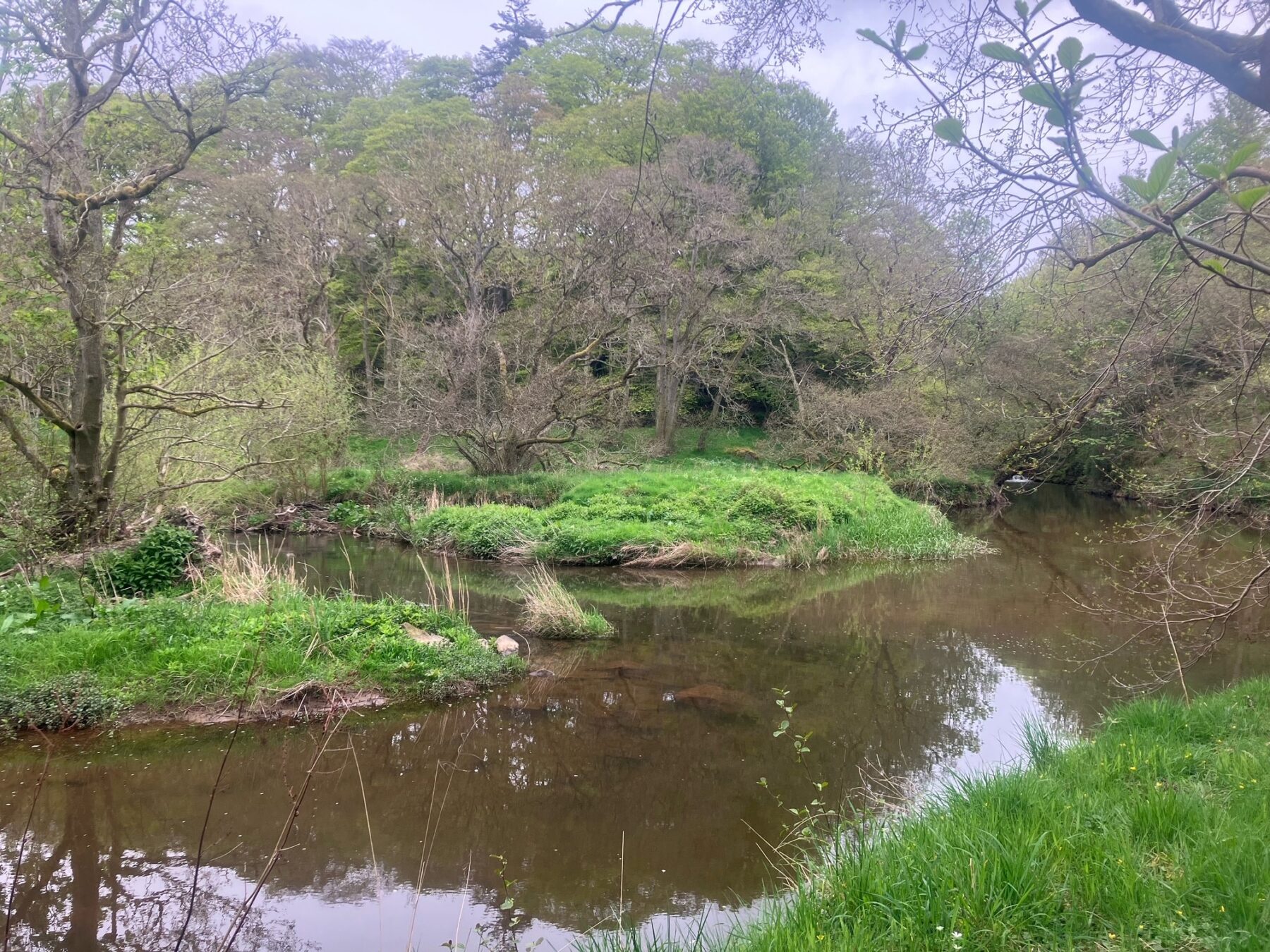
Before: Silted-up, stagnant and overgrown after decades of sediment build up.
The second image was taken after this area was cleared and shortly after the moment the weir was breached and water began to flow freely again for the first time in 150 years. The third image was taken several weeks later after further restoration of the historic river channel and during riverbank reprofiling, using boulders and wind-blown trees to provide stability.
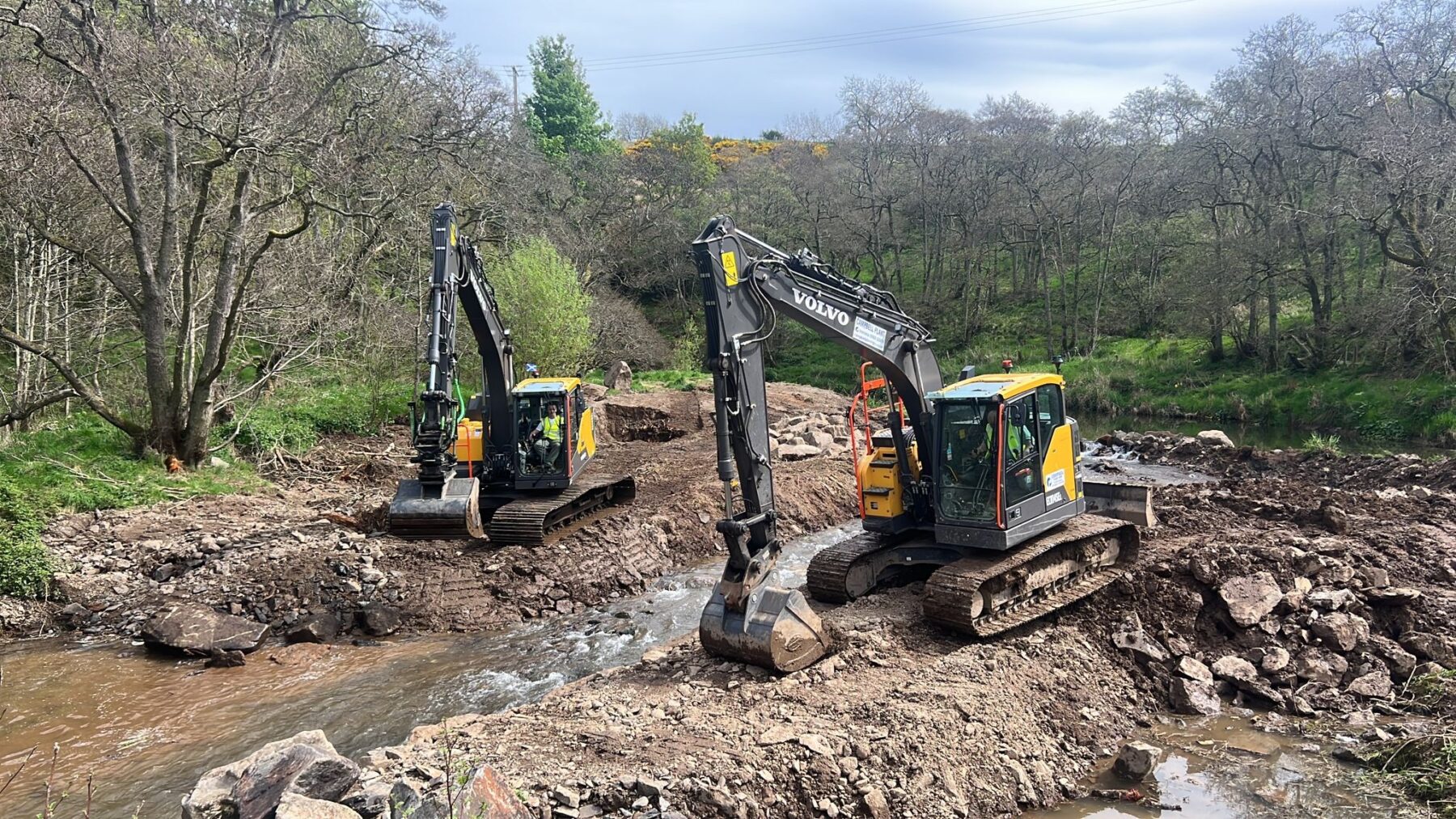
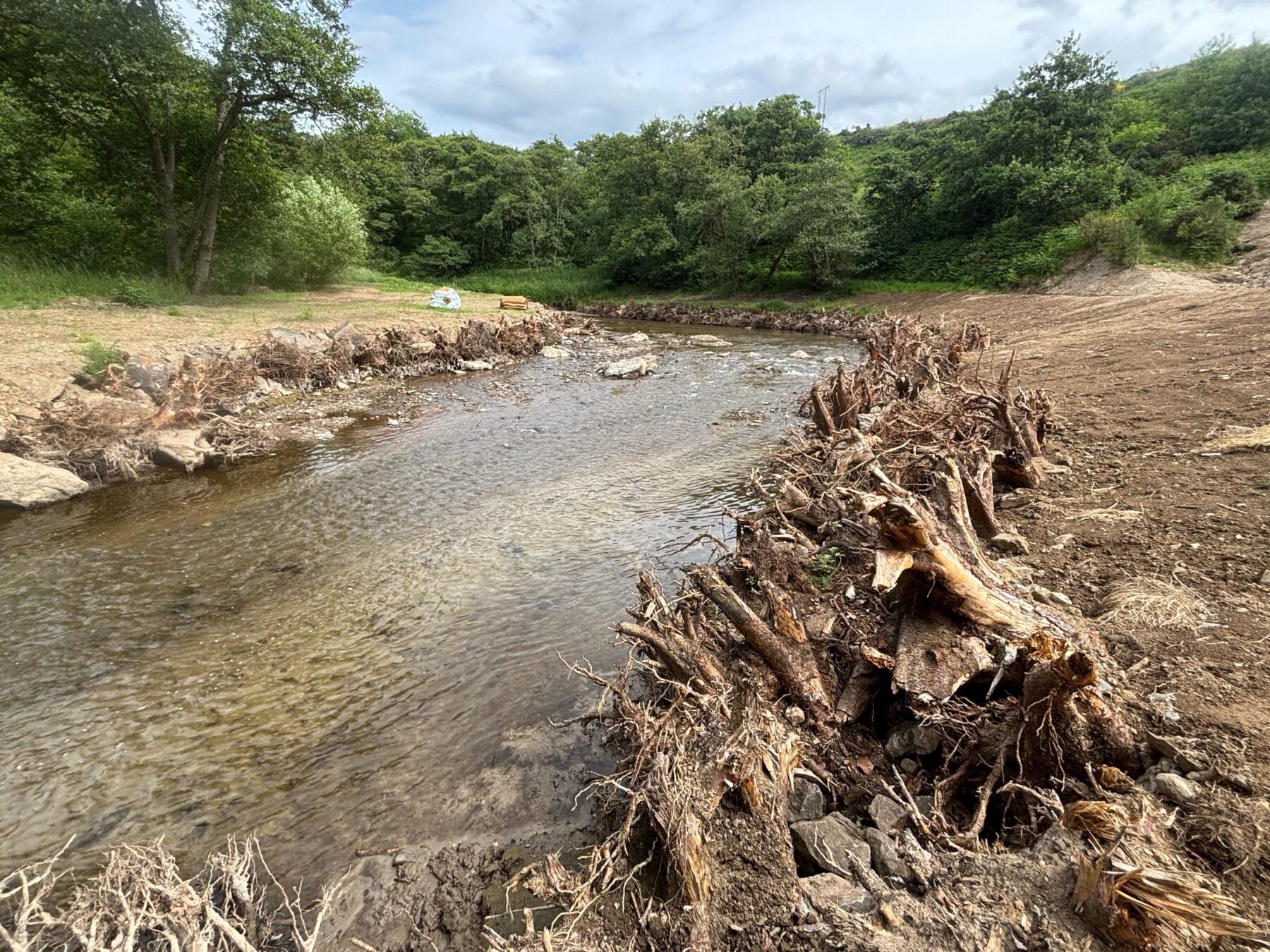
The final image in this series was taken during the latter stages of work, following the completion of riverbank reprofiling. After this point the riverbanks were secured with natural coconut fibre matting to bring further stability to the soil and allow for the natural regeneration of vegetation.
After: a river reconnected, re-naturalising, flowing freely and once more fully accessible for wild salmon.
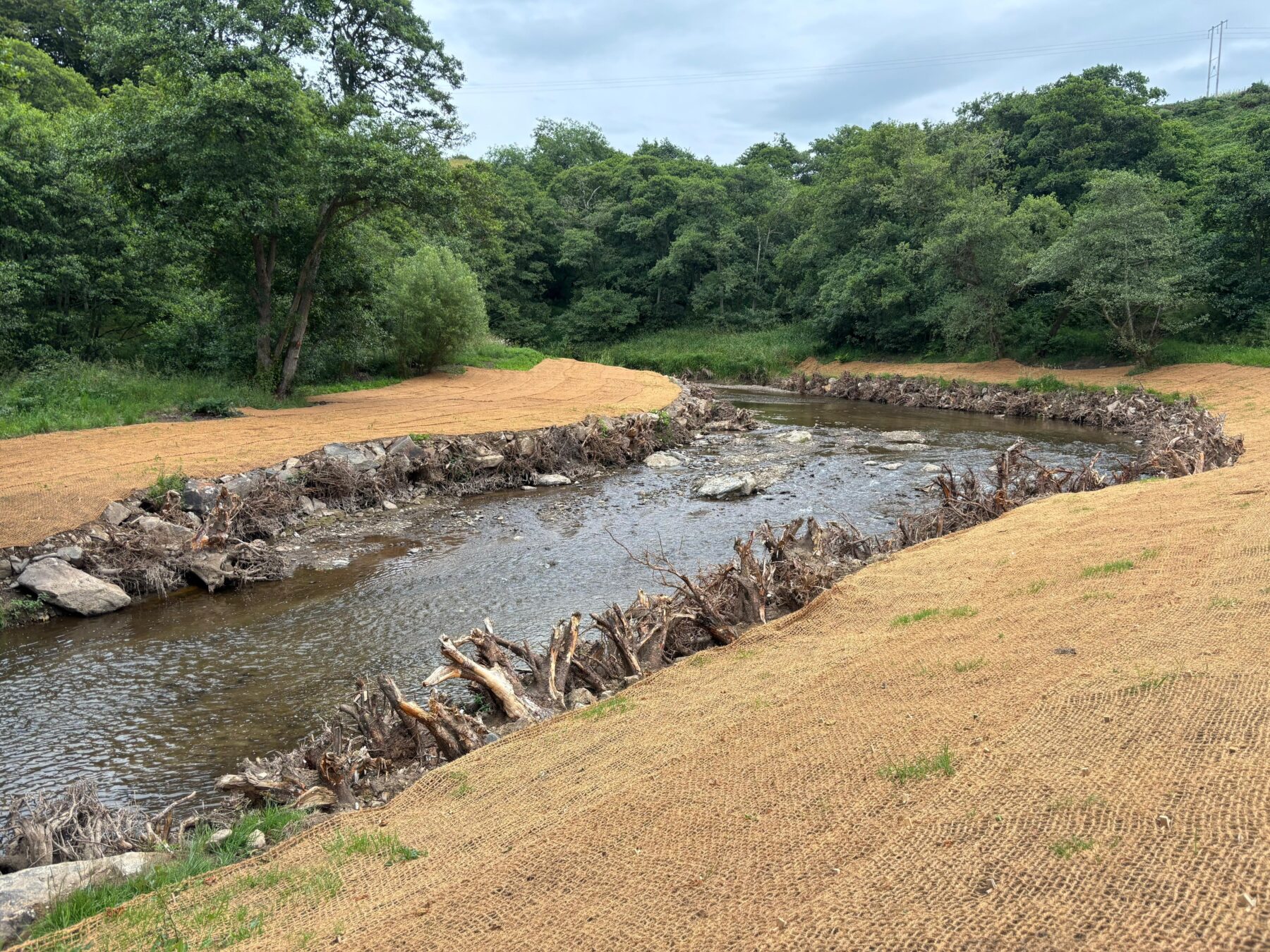
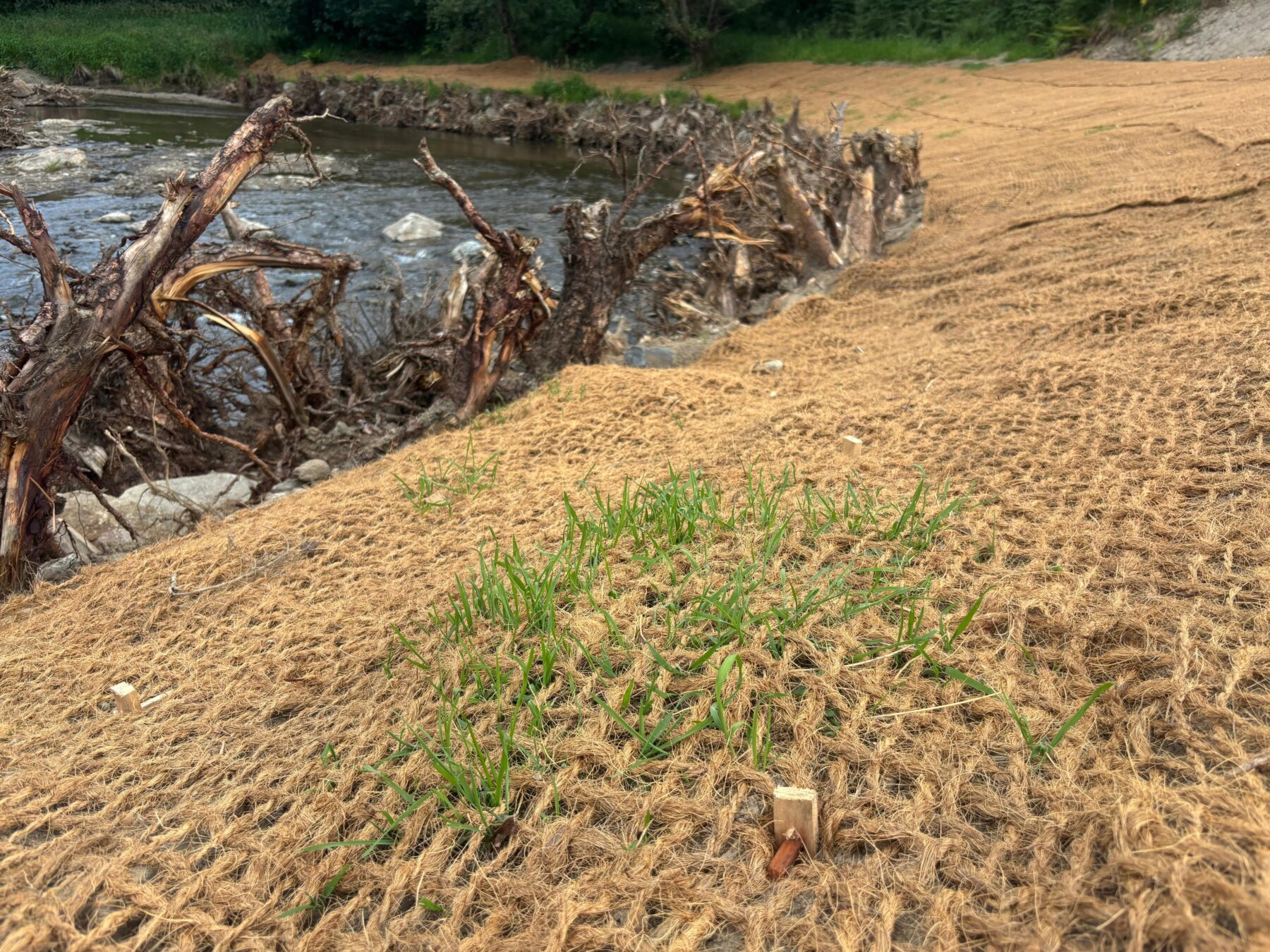
Vegetation regenerating through the natural coconut fibre matting.
The site in October 2025.
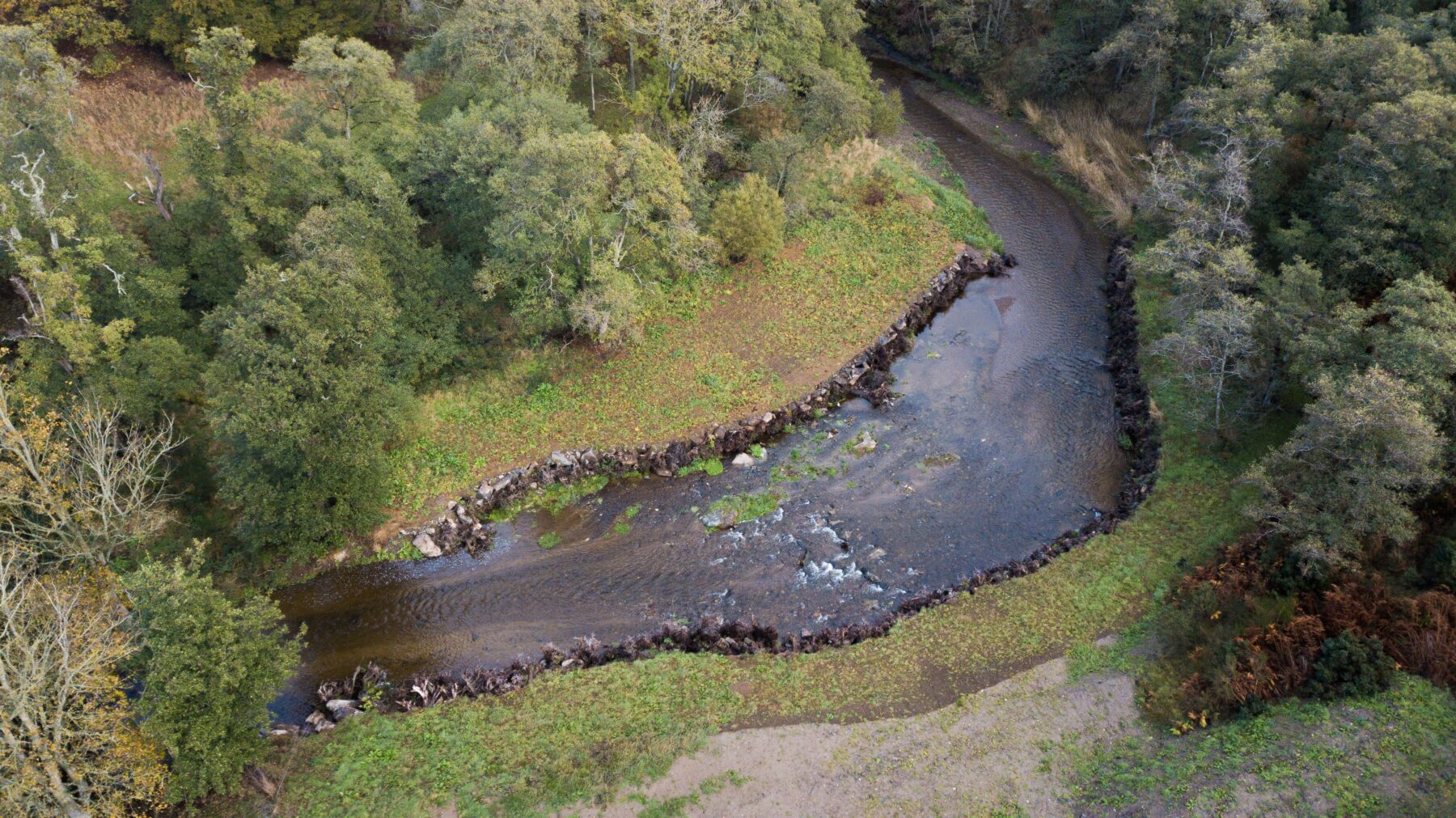
People, Partnership and Progress
The reopening of the King Edward tributary was possible only through the combined efforts of individuals, organisations and businesses working together in partnership. The Project Deveron partners would like to extend our sincere thanks to Chivas Brothers’ The River Within programme, and the European Open Rivers Programme for funding this important work.
We would also like to thank contractors cbec eco engineering and McGowan Environmental for their hard work and expertise in carrying out this project to such a high standard.
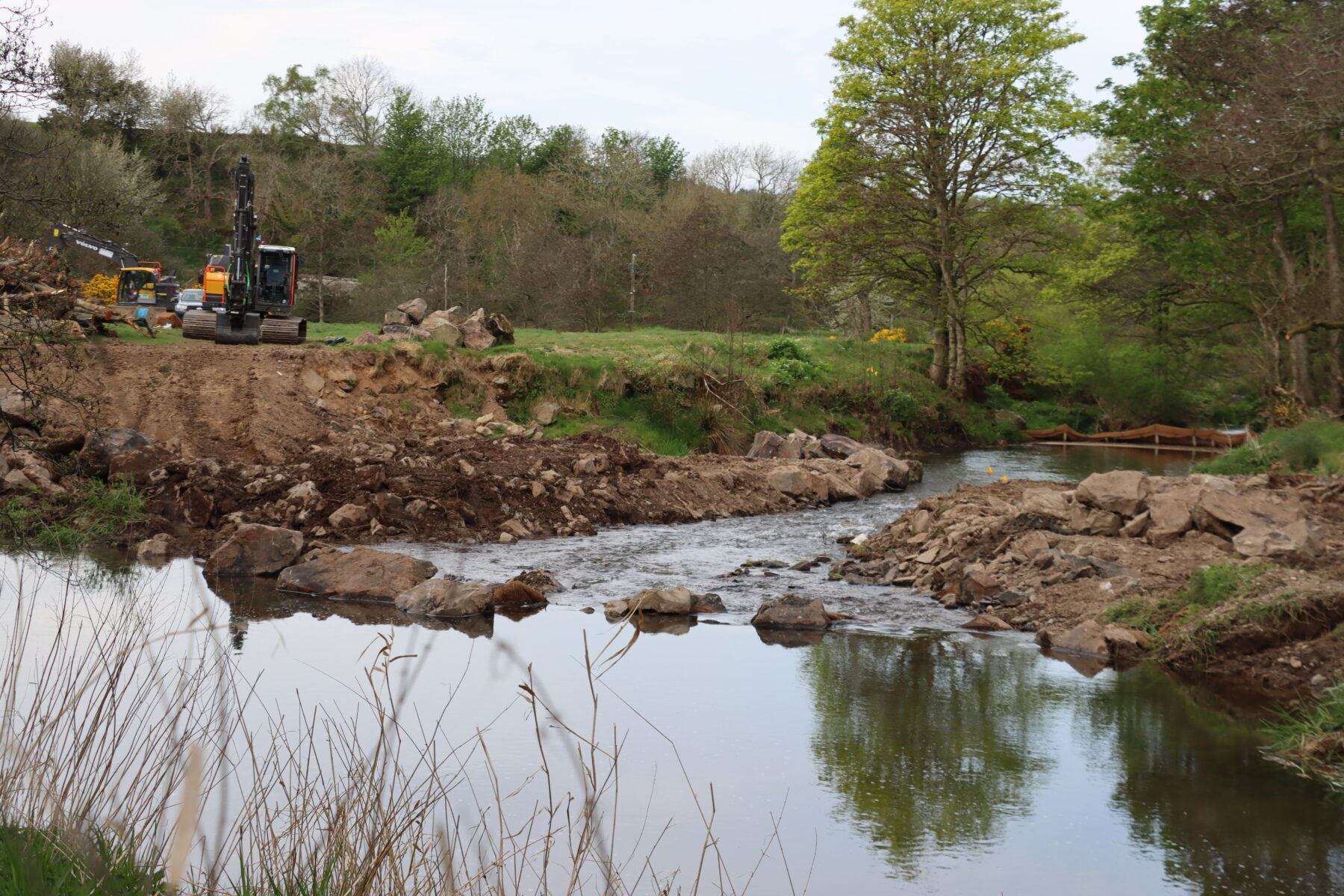
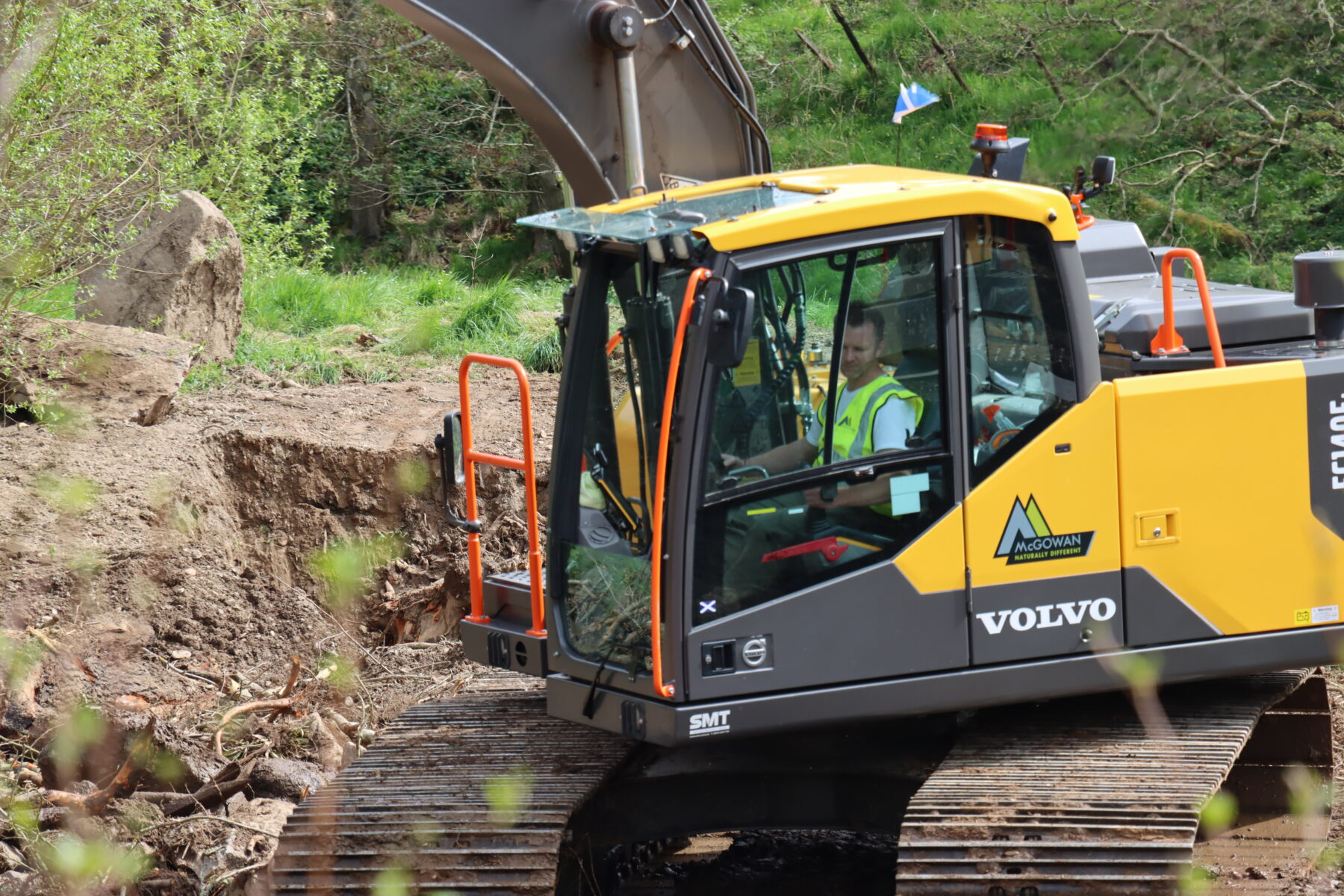
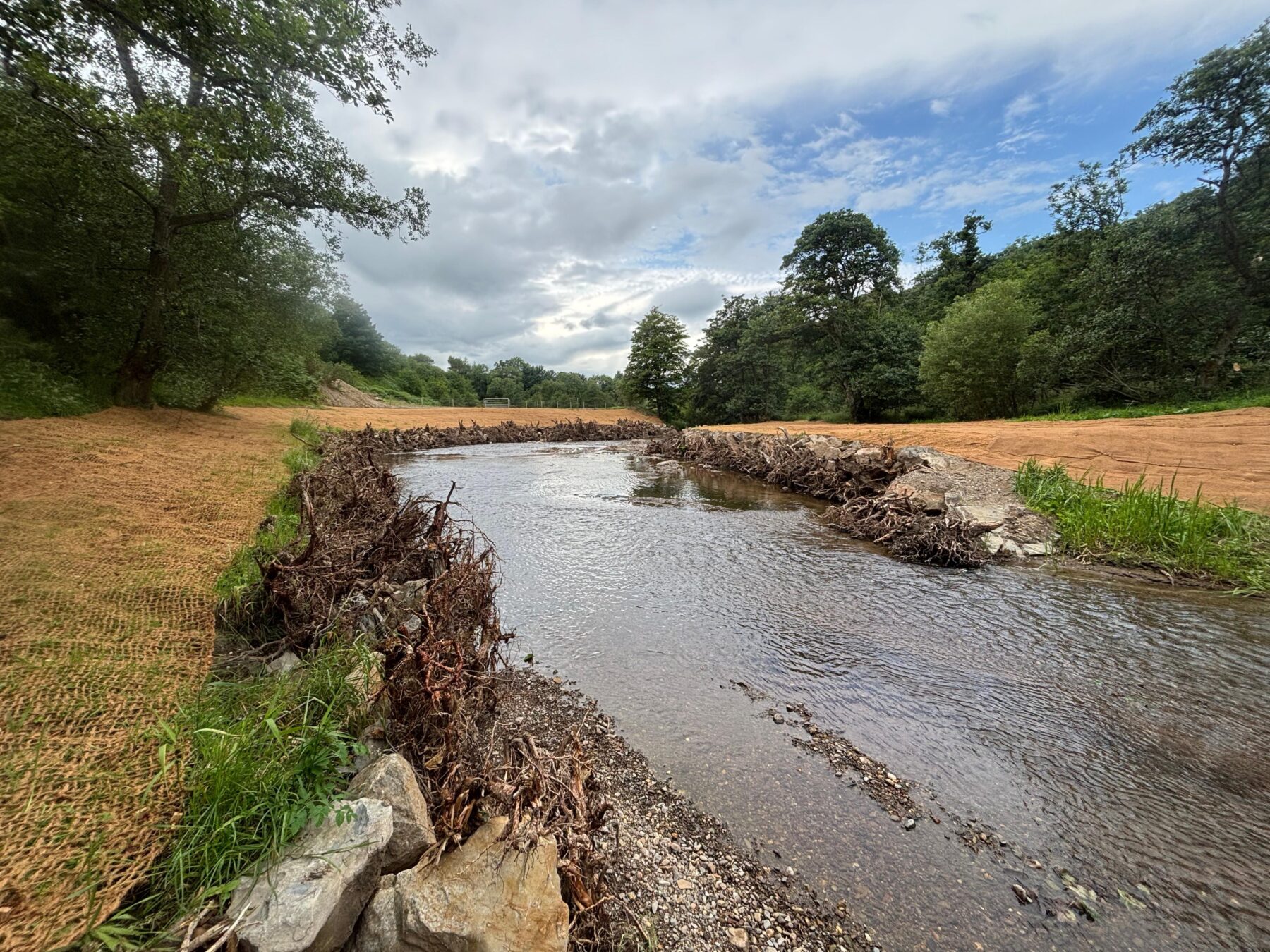
Reflections
This work is a powerful example of how restored, reconnected and resilient rivers benefit nature and people.
Richie Miller, Director of the Deveron, Bogie & Isla Rivers Charitable Trust, said: ‘We’re extremely proud of this achievement so early in the lifespan of this partnership project. It’s been a real team effort to make this important work possible. We hope to see this area being home to an increasing number of juvenile salmon for generations to come. A huge thank you to Chivas Brothers and The European Open Rivers Programme for their support in making this possible.’
Mark Bilsby, CEO of the Atlantic Salmon Trust, commented: ‘One of the best things we can do in the immediate term for wild Atlantic salmon is to remove manmade barriers to migration. That’s because free access to cold, clean water is the key requirement for this iconic species, if it is to have a thriving future. Not only will this work help endangered wild Atlantic salmon, but a reconnected environment is a more resilient and adaptable one for wildlife and people. This is a nature-based solution in action, showing how working to help wild salmon also helps tackle the climate and biodiversity crisis.’
Ronald Daalmans, Sustainability Director at Chivas Brothers commented: ‘We’re proud to champion vital river restoration projects that not only protect and enhance Scotland’s waterways and biodiversity, but also strengthen ecosystems and ensure Scotland’s rivers continue to support our communities. Through The River Within – a long-term programme in partnership with three Scottish river trusts – the Deveron, Bogie and Isla Rivers Charitable Trust; Findhorn, Nairn and Lossie Rivers Trust; and the Spey Catchment Initiative – we’re helping secure the future health of our rivers for generations to come.’
